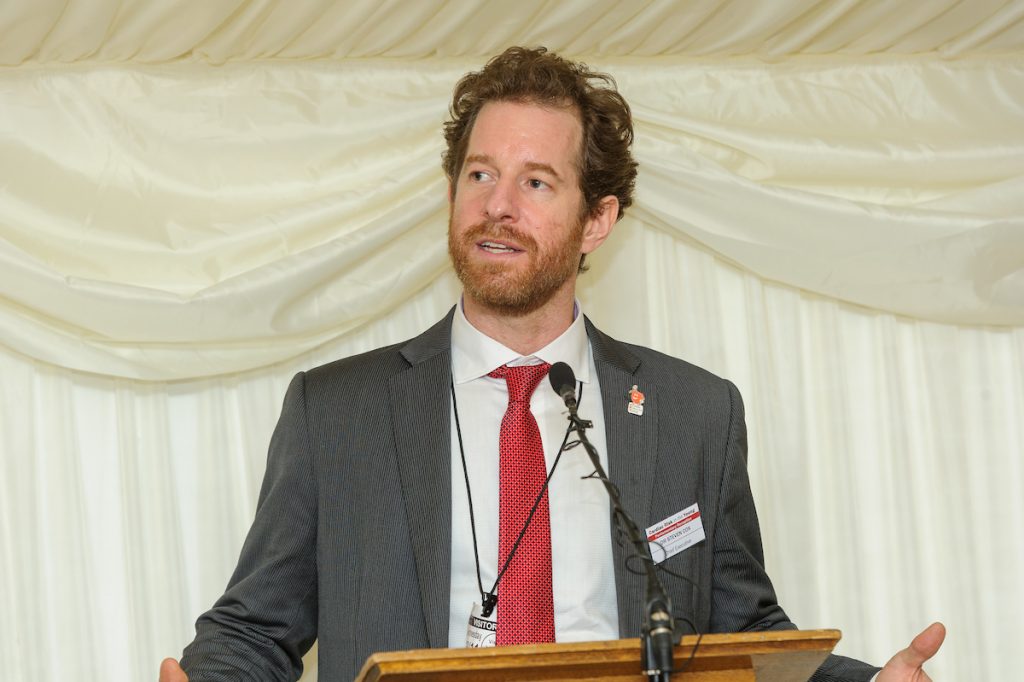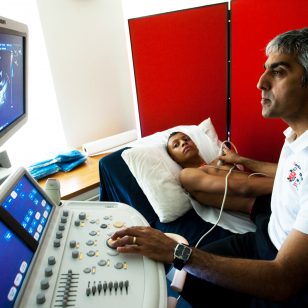CRY, which provides free heart checks for over 32,000 young people every year in the UK, has responded swiftly to a huge influx of inquiries from young people – and their parents – wanting to book in for tests, following the shocking scenes witnessed around the world when Danish footballer Christian Eriksen collapsed on the pitch during a match last month at the start of the Euro 2021 tournament.
Due to the restrictions of the UK’s national lockdown, the pioneering screening service developed by the charity Cardiac Risk in the Young (CRY) had to be halted for around 15 months. Many of the doctor’s and cardiac physiologists funded by CRY were also redeployed to front-line services at the start of the pandemic. This resulted in 10’s of thousands of postponed appointments and missed opportunities to be tested.
Screening services in the community and for both grass roots and elite sports were already due to resume on June 28th – but the huge waiting lists caused by the pandemic, coupled with heightened awareness and anxiety following Denmark’s match against Finland on June 12th, led to CRY’s decision to increase its capacity immediately with the repurposing of its Head Office in Surrey.
Starting this weekend [Saturday 10 and Sunday 11 July 2021] CRY’s offices (in a central location, close to the M25 and a mainline station) will be transformed into a specialist screening centre – with regular weekend appointments scheduled for the rest of the year – and beyond – as part of this innovative new service. These first two sessions were filled within 5 minutes of being opened and all future appointments will be available via www.testmyheart.org.uk
Young sudden cardiac death (YSCD) claims the lives of at least 12 seemingly fit and healthy young people every week in the UK. In around 80% of cases of these arrhythmias and heart muscle conditions (cardiomyopathies) there will have been no signs or symptoms – but the vast majority of the underlying and ‘hidden’ issues that cause fatal cardiac arrests can be identified using a simple ECG test, which is then read and assessed by a specially trained cardiologist.
CEO of the charity Cardiac Risk in the Young (CRY), which was established over 25 years ago to support families affected by YSCD and to help prevent these devastating young deaths, Dr Steven Cox, explains;

“CRY stopped screening on March 16th, 2020, as part of the UK’s initial national lockdown measures. International data suggest this ‘hiatus’ resulted in around 150 young people NOT receiving a diagnosis of a potentially life-threatening condition and the treatment, lifestyle advice or surgery that would reduce their risk of suffering a cardiac arrest. Worryingly, our waiting list of young people who have registered an interest in screening now stands at 50,000.
“During lockdown we worked really hard to ensure our screening team would be appropriately prepared, with revised protocols in place, in terms of PPE, social distancing and enhanced cleaning, and that we’d be ready “to get back on the road” as soon as it was safe to do so.
“We felt so relieved and enthused when we had to the go-ahead to start screening again – knowing we had a huge waiting list to work through and a ‘duty’ to deliver screening to young, asymptomatic people across the UK.
“But none of us could have predicted the events of June 12th and the incredible spotlight this shone on the fact that the fittest and healthiest of young people can still suffer from heart conditions. We were so reassured when we heard that Christian Eriksen had survived the trauma of the sudden cardiac arrest – but tragically, this is not the outcome for the majority of young people who suffer a cardiac arrest without warning. Most will collapse whilst at home, alone or during rest and in their sleep – and the only chance of saving them is through proactive heart screening. At CRY we are doing everything we can to identify those at risk, understand why these collapses and sudden cardiac arrests happen – and that’s also why research is so important.”
CRY’s community screenings are usually funded by bereaved families, who have been affected by a young sudden cardiac death, so there is no charge to the individual when CRY’s mobile cardiac screening service comes to a local venue.
For the past 10 years, CRY has also funded Saturday screening clinics twice a month at St George’s Hospital, South West London, which is also home to CRY’s pioneering Centre for Inherited Cardiac Conditions and Sports Cardiology. But, as the NHS readjusts to new Covid-procedures and works through its own backlog, CRY had to seek an alternative venue – and quickly!

The CRY screening programme (overseen by Professor Sanjay Sharma, one of the world’s leading experts in sports cardiology & inherited heart conditions) uses a very simple, effective and non-invasive way of diagnosing most cardiac abnormalities. It is a quick, painless and affordable procedure called an electrocardiogram (ECG).
If a young person is found to have an abnormality, CRY will also conduct an Echocardiogram (ultrasound) on the same day. Screening has been shown to reduce the incidence of young sudden cardiac deaths by 89%.
CRY wants every young person between the age of 14 – 35 to have the opportunity to have their heart tested. To date, over 220,000 young people have been screened by CRY – and many young lives have been saved.





